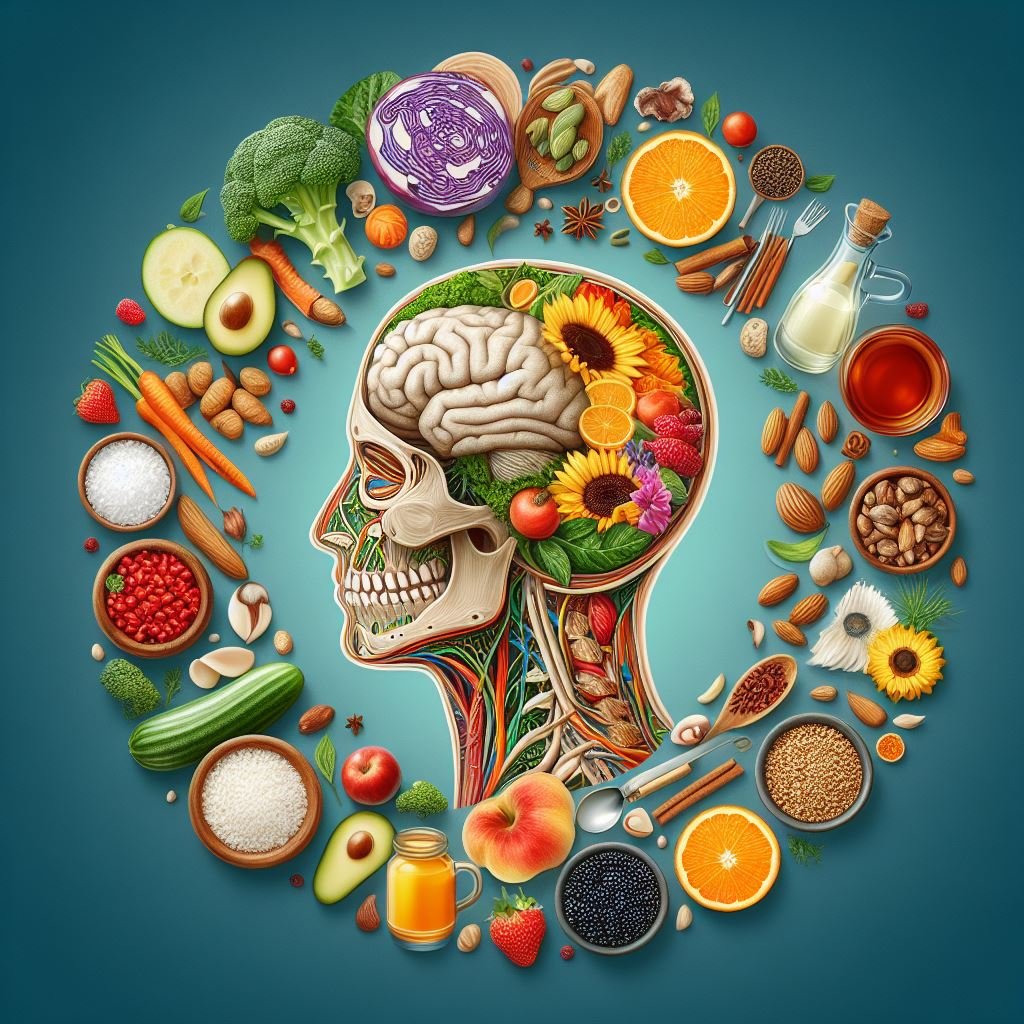Introduction
Holistic nutrition is a comprehensive approach to health and well-being that considers the whole person, including their physical, mental, and emotional health. It emphasizes the importance of consuming nutrient-rich foods that support the body’s natural healing abilities and promote optimal functioning. Holistic nutritionists believe that food is not just a source of calories but also a powerful tool for preventing and treating disease, enhancing energy levels, and improving overall quality of life.The Power of Whole Foods: Unlocking the Secrets of Nutrient-Rich Eating
**Holistic Nutrition: Fueling Your Body and Mind**
In the realm of health and well-being, holistic nutrition stands as a beacon of transformative power. It embraces the interconnectedness of our physical, mental, and emotional selves, recognizing that what we nourish our bodies with profoundly impacts our overall vitality.
Holistic nutritionists believe that food is not merely sustenance but a potent source of healing and nourishment. By consuming nutrient-rich whole foods, we provide our bodies with the essential building blocks they need to thrive. Fruits, vegetables, whole grains, and lean proteins offer an abundance of vitamins, minerals, antioxidants, and fiber, which support our immune system, reduce inflammation, and promote optimal organ function.
Beyond its physical benefits, holistic nutrition also nourishes our minds and emotions. The gut-brain connection is a well-established fact, and the foods we eat can significantly influence our mood, cognitive function, and sleep quality. By choosing nutrient-dense foods, we support the production of neurotransmitters like serotonin and dopamine, which promote feelings of happiness, contentment, and focus.
Moreover, holistic nutrition emphasizes the importance of mindful eating. When we eat with intention and gratitude, we not only nourish our bodies but also cultivate a deeper connection with ourselves and our food. By slowing down, savoring each bite, and paying attention to our hunger cues, we can prevent overeating and promote a healthy relationship with food.
Adopting a holistic nutrition approach requires a shift in mindset. It is not about restrictive diets or quick fixes but about embracing a sustainable and nourishing lifestyle. By making gradual changes to our eating habits, we can gradually transform our health and well-being.
Start by incorporating more fruits and vegetables into your meals. Experiment with different colors and textures to ensure you’re getting a wide range of nutrients. Choose whole grains over refined grains, and opt for lean protein sources like fish, poultry, and beans. Limit processed foods, sugary drinks, and unhealthy fats, which can deplete our bodies of essential nutrients.
Remember, holistic nutrition is a journey, not a destination. By embracing the principles of whole food consumption, mindful eating, and a balanced approach to nourishment, we can unlock the transformative power of food and fuel our bodies and minds for optimal health and well-being.Mindful Eating: Cultivating a Healthy Relationship with Food
**Holistic Nutrition: Fueling Your Body and Mind**
In the realm of mindful eating, holistic nutrition emerges as a transformative approach that nourishes not only our physical bodies but also our mental and emotional well-being. By embracing a holistic perspective, we recognize the profound connection between what we eat and how we feel, think, and live.
Holistic nutrition goes beyond counting calories or adhering to rigid diets. It emphasizes the importance of consuming whole, unprocessed foods that are rich in nutrients and vital energy. These foods, such as fruits, vegetables, whole grains, and lean proteins, provide our bodies with the essential building blocks for optimal health and vitality.
Moreover, holistic nutrition encourages us to pay attention to our bodies’ signals and to eat when we are truly hungry and stop when we are satisfied. By listening to our inner wisdom, we can avoid overeating and establish a healthy relationship with food.
The benefits of holistic nutrition extend far beyond physical health. When we nourish our bodies with wholesome foods, we also nourish our minds and emotions. Studies have shown that a diet rich in fruits, vegetables, and whole grains can improve mood, reduce stress, and enhance cognitive function.
Furthermore, holistic nutrition promotes a sense of mindfulness and gratitude. By taking the time to prepare and enjoy our meals, we cultivate a deeper appreciation for the nourishment we receive. This practice helps us to connect with the present moment and to savor the simple pleasures of life.
Incorporating holistic nutrition into our lives is a journey of self-discovery and empowerment. It requires a willingness to listen to our bodies, to experiment with different foods, and to make gradual changes that support our overall well-being.
As we embark on this journey, we may encounter challenges and setbacks. However, by staying committed to our goals and seeking support from like-minded individuals, we can overcome these obstacles and reap the transformative benefits of holistic nutrition.
Remember, nourishing our bodies and minds is not a destination but an ongoing process. By embracing a holistic approach to nutrition, we can cultivate a healthy relationship with food, fuel our bodies with vitality, and unlock our full potential for physical, mental, and emotional well-being.The Gut-Brain Connection: How Your Digestive Health Impacts Your Mood
**Holistic Nutrition: Fueling Your Body and Mind**
In the realm of health and well-being, holistic nutrition stands as a beacon of transformative power. It recognizes the profound connection between what we eat and our overall health, encompassing not only physical nourishment but also mental and emotional well-being.
One of the most fascinating aspects of holistic nutrition is its emphasis on the gut-brain connection. This intricate relationship reveals how our digestive health exerts a profound influence on our mood, cognitive function, and overall mental health.
The gut, often referred to as the “second brain,” is home to trillions of microorganisms that play a vital role in digestion, nutrient absorption, and immune function. These microbes also produce neurotransmitters, such as serotonin, which is known to regulate mood and sleep.
When our gut microbiome is balanced and healthy, we experience a sense of well-being and vitality. However, when it becomes imbalanced, it can lead to a cascade of health issues, including digestive problems, mood swings, anxiety, and depression.
Holistic nutritionists believe that nourishing our gut microbiome is essential for optimal mental health. By consuming a diet rich in fiber, probiotics, and prebiotics, we can support the growth of beneficial bacteria and promote a healthy gut environment.
Fiber, found in fruits, vegetables, and whole grains, acts as a prebiotic, feeding the good bacteria in our gut. Probiotics, such as those found in fermented foods like yogurt and kefir, introduce live beneficial bacteria directly into the digestive tract.
In addition to supporting gut health, holistic nutrition also emphasizes the importance of consuming nutrient-rich foods that provide essential vitamins, minerals, and antioxidants. These nutrients play a crucial role in brain function, mood regulation, and overall well-being.
By embracing holistic nutrition, we can fuel our bodies and minds with the nourishment they need to thrive. It is a journey that empowers us to take control of our health, improve our mood, and unlock our full potential.
Remember, the food we eat has the power to heal, nourish, and transform. By choosing a holistic approach to nutrition, we can cultivate a healthy gut-brain connection and experience the transformative benefits of true well-being.Q&A
**Question 1:** What is the primary focus of holistic nutrition?
**Answer:** Optimizing overall well-being by considering the interconnectedness of physical, mental, and emotional health.
**Question 2:** How does holistic nutrition differ from traditional nutrition approaches?
**Answer:** Holistic nutrition emphasizes the importance of whole, unprocessed foods, considers individual needs and preferences, and addresses the root causes of health concerns.
**Question 3:** What are some key principles of holistic nutrition?
**Answer:**
* Prioritizing nutrient-rich, whole foods
* Balancing macronutrients (carbohydrates, protein, fat)
* Hydrating adequately
* Managing stress and promoting emotional well-being
* Supporting digestion and gut health



Leave a Reply